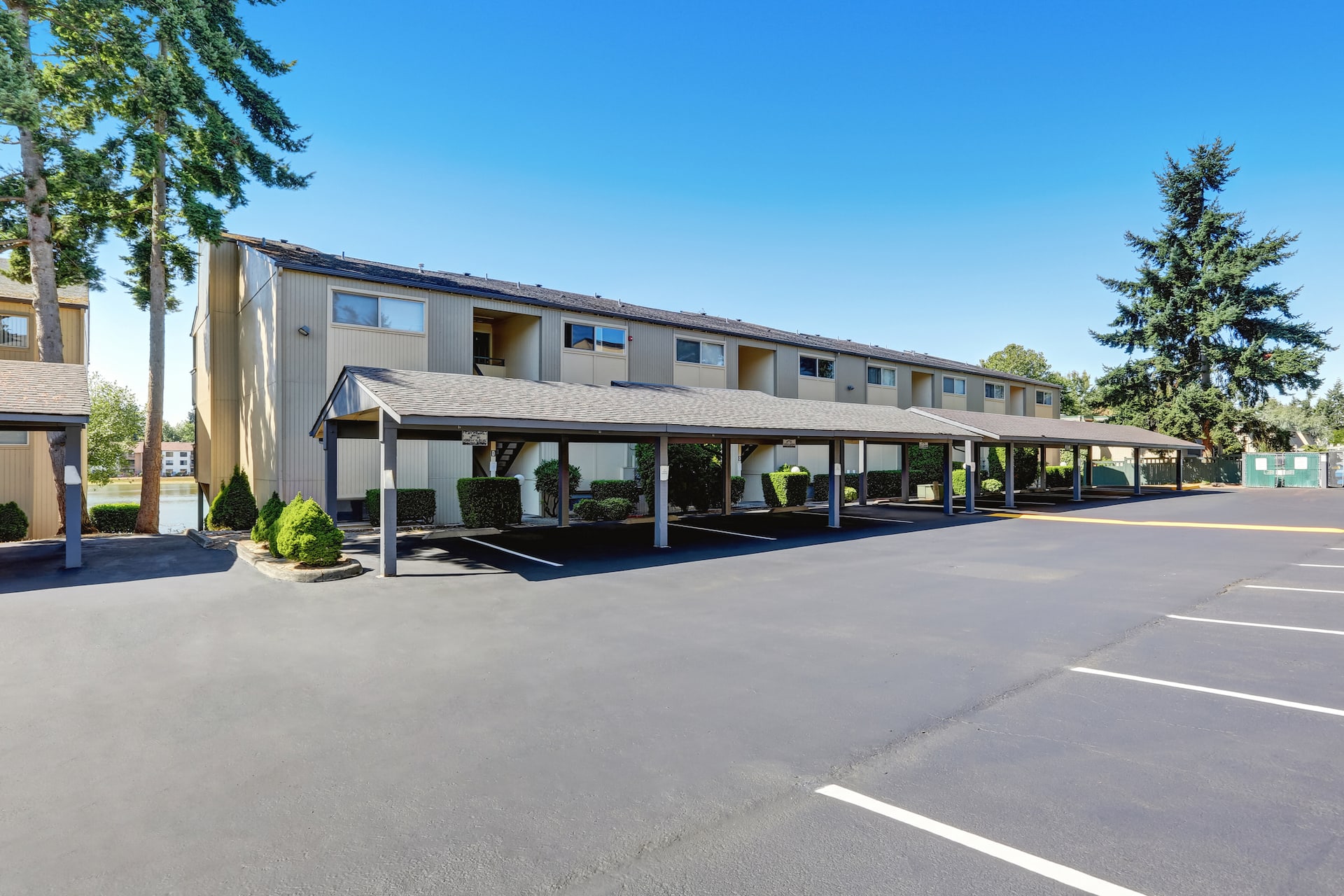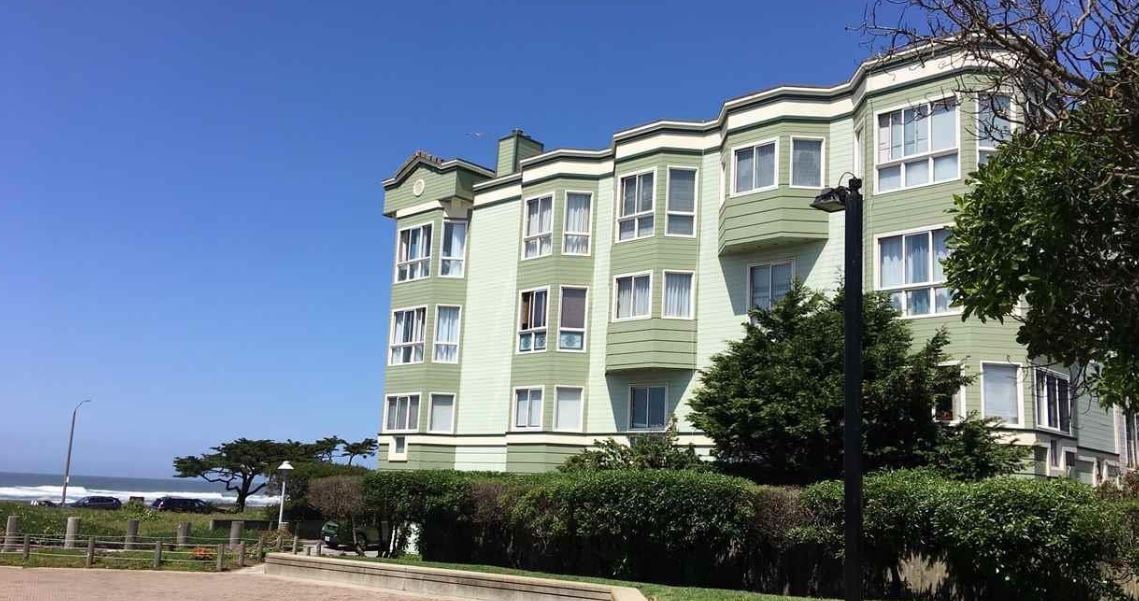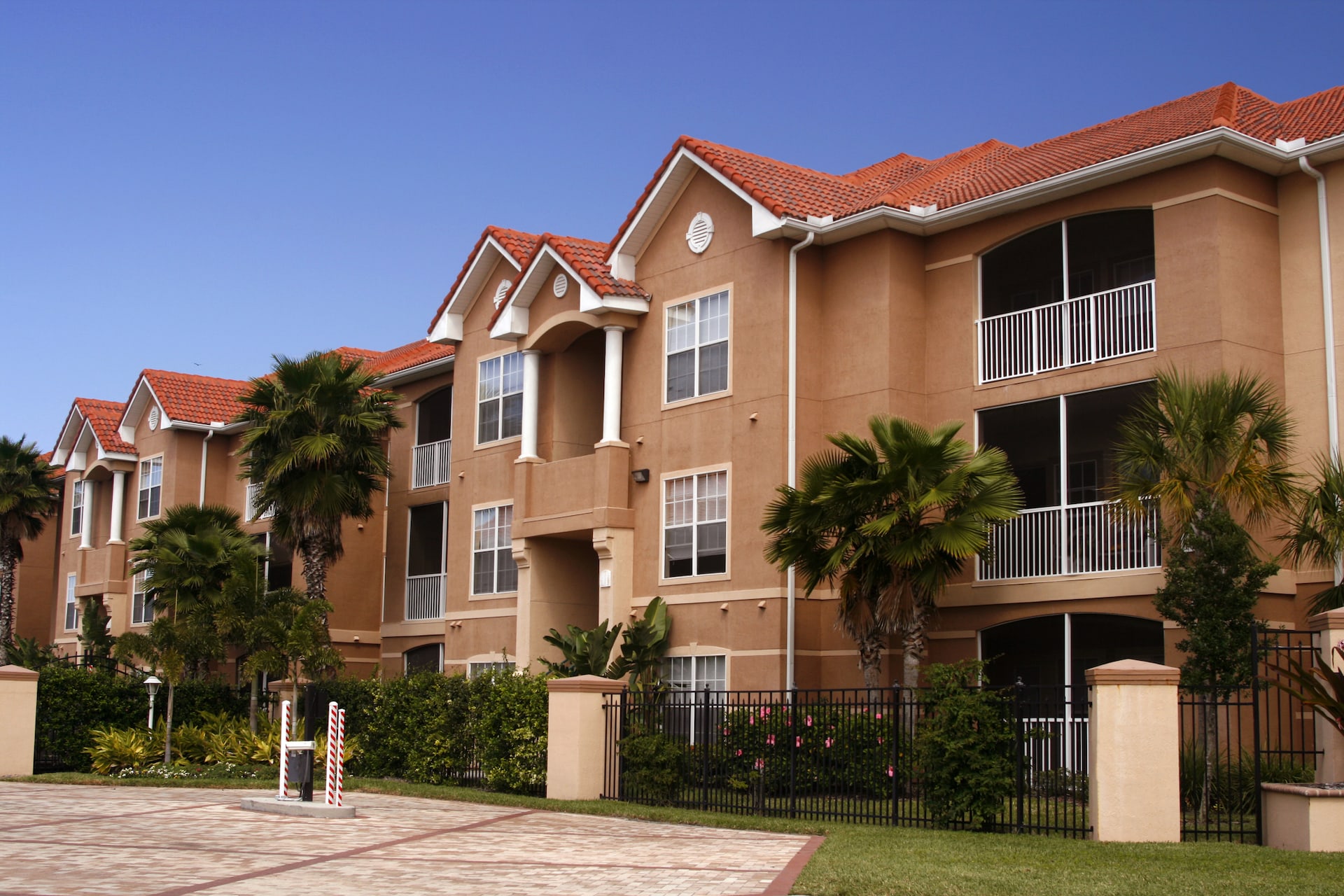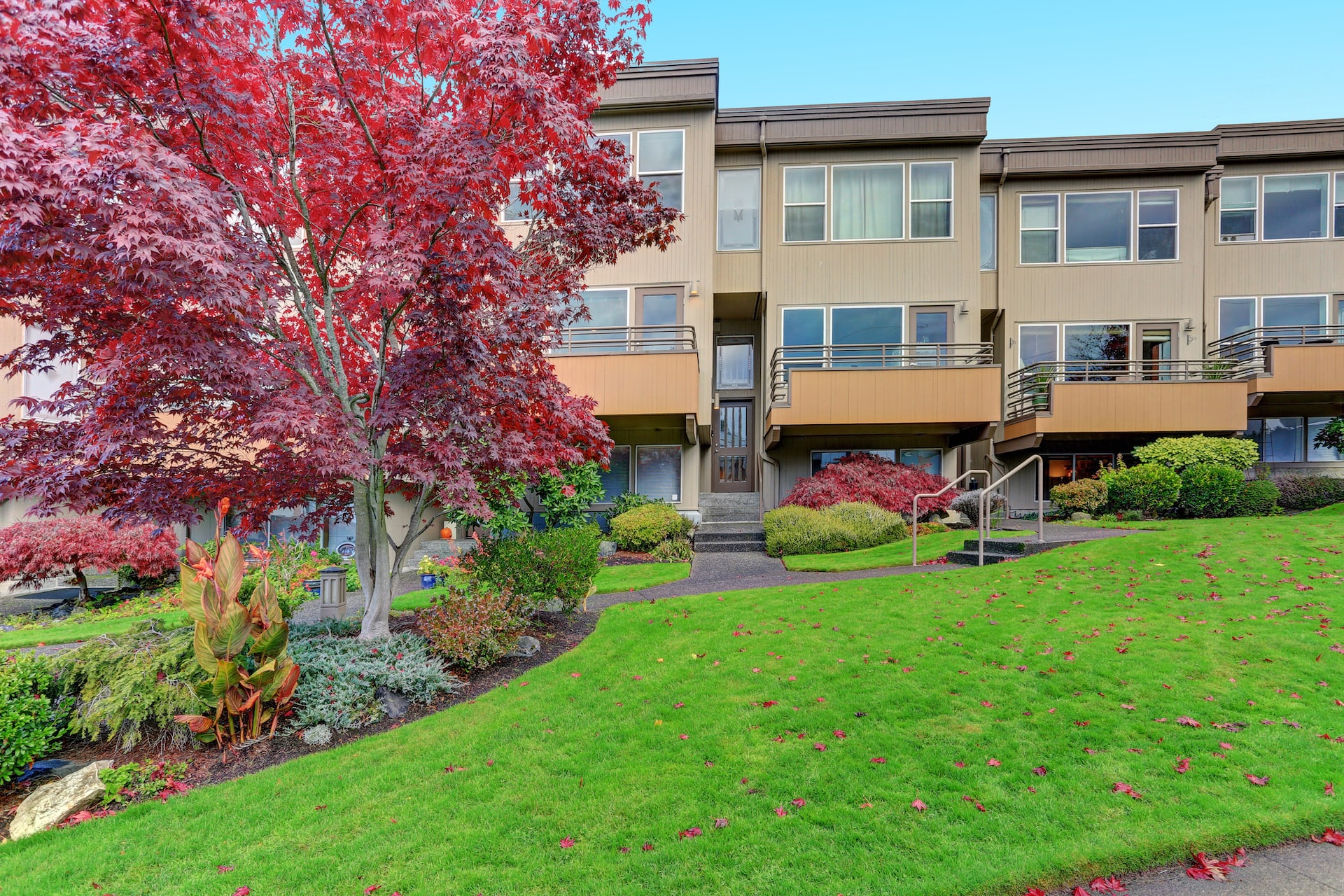If you’re an investor or end-user borrower interested in purchasing or refinancing a non-warrantable condo, this article covers all the common topics you’ll need to consider before you take your first steps towards finding a loan. At First Capital Trust Deeds (FCTD), we’re experienced mortgage brokers who have helped countless real estate investors obtain hard money and NonQM loans to acquire real estate – including non-warrantable condos. Financing non-warrantable condos requires special considerations and challenges. We’ve drawn on our experience in this space to ensure you can approach the process fully informed about your options.
Here are the topics I’ll cover:
- What is a warrantable condo?
- What is a non-warrantable condo?
- What are the most common examples of non-warrantable condos?
- How do buyers find out if they're buying a non-warrantable condo?
- What are the financing challenges for non-warrantable condos?
- Hard money loans for financing non-warrantable condos
- Business-purpose hard money for financing non-warrantable condos
- NonQM loans for non-warrantable condos
- Consumer-purpose non-warrantable condo financing
- Applying for a non-warrantable condo loan
What is a Warrantable Condo?
A warrantable condo is a type of housing that meets specific rules set by Fannie Mae and Freddie Mac, the two mortgage agencies owned by the United States government. Fannie and Freddie buy mortgages from banks and lenders, freeing up their capital so they can make new loans. Fannie and Freddie buy “conforming” mortgages, which means that the loans must conform to their standards.
A condo is a unit in a larger building, or project where each person owns their own unit. Individuals also share ownership of common areas like hallways or gardens. This can work differently depending on the condo. Some people own a unit in a building, others own shares in an apartment cooperative, and some own land in a planned unit development where they share infrastructure like private roads.
Regardless of the type, all condos have to follow the same rules to be considered warrantable.
They need to put at least 10% of their annual budget into a reserve fund. Also, at least 50% of the units must be lived in by their owners.
What is a Non-Warrantable Condo?
A condominium property is flagged non-warrantable if the loan isn’t eligible to be sold to Fannie Mae or Freddie Mac, because it doesn’t conform to their guidelines. Because it doesn’t meet these lending requirements, many lenders consider it too risky to finance a mortgage for this type of property – even if the borrower is credit-worthy.
A condo unit might be considered non-warrantable if:
- The project is new construction and/or is not yet completed
- The developer hasn’t turned over control of the HOA to the owners
- A high percentage of units are occupied by non-owners (50%+)
- The community allows short-term rentals
- A single person or entity owns more than 10% of the total number of units
- The building owner or developer is involved in litigation of any kind
A condo project is considered non-warrantable if it:
- Includes manufactured homes
- Requires club memberships
- Operates as a hotel or motel (condotel)
- Is part of a continuing care facility
- Is involved in a lawsuit
- Allows a single entity to own more than two units in small developments or 20% of units in larger ones
- Has commercial space exceeding 35% of the total space
- Has over 15% of units 60 days or more behind on HOA dues

|
|
Warrantable Condo Loans |
Non-Warrantable Condo Loans |
| Eligibility | Condos that meet Fannie Mae and Freddie Mac criteria | Condos that do not meet Fannie Mae and Freddie Mac criteria |
| Lender Options | Wide range of lenders including traditional banks and credit unions | Limited to specialized lenders like NonQM, portfolio lenders, and hard money lenders |
| Interest Rates | Typically lower due to lower risk | Typically higher due to increased risk |
| Down Payment | Can be as low as 3% depending on the loan program | Often requires a larger down payment |
| Loan Approval Process | More straightforward since the condo meets standardized criteria | Can be more complex and time-consuming due to increased scrutiny |
| Resale Potential | Easier to sell as more buyers will be able to secure financing | Can be harder to sell as potential buyers may face the same financing challenges |
What are the Most Common Examples of Non-warrantable Condos?
Non-warrantable condos typically fall into several categories based on the reasons they don't meet Fannie Mae or Freddie Mac's lending requirements.
Here are some common examples:
- Condotels: These are condos that operate like a hotel, with a front desk and services. They’re often used as vacation homes and can be rented out when the owner is not using them.
- Condo Projects with High Commercial Space: If a condo project has commercial space that exceeds 35% of the total space, it’s considered non-warrantable. This could include condos in mixed-use buildings with retail or office spaces.
- New Developments: New condo projects that aren’t fully sold or are still under construction often fall into the non-warrantable category because they carry more risk for lenders.
- Investor-Owned Condos: If a single person or entity owns more than 10% of the units in a condo project, it may be considered non-warrantable. This is because it can lead to potential conflicts and financial instability.
- Condos with Litigation Issues: Condo associations involved in lawsuits – whether they're related to construction defects, disputes among owners, or other issues – can be deemed non-warrantable.
- Condos with High Delinquency Rates: If more than 15% of condo owners in a project exceed 60 days past due on their homeowners association (HOA) dues, the condo may be considered non-warrantable. (We saw this often during the Great Recession of 2007-2009, where numerous condo owners stopped paying their mortgage, taxes, insurance and HOA fees).
- Condos Requiring Mandatory Club Memberships: Some luxury condos require owners to maintain a membership in a country club, golf club, or similar organization. These condos can be considered non-warrantable due to the additional financial obligation.
Remember, while these types of condos can be more challenging to finance, it's not impossible. There are lenders who specialize in non-warrantable condo loans.
How Do Buyers Find Out if They're Buying a Non-warrantable Condo?
- Ask the Seller or Real Estate Agent: The easiest way to find out is simply to ask. Sellers or real estate agents should have this information readily available.
- Review the Condo Association Documents: The condo association's bylaws, covenants, conditions and restrictions (CC&Rs), as well as financial statements can provide clues about whether the condo is warrantable. Look for the percentage of owner-occupied units, the amount of dues in arrears, the percentage of the property that's commercial, and any ongoing litigation.
- Contact the Condo Association or Management Company: They should be able to provide information about the property, including whether it meets the criteria to be considered warrantable.
- Work with a Lender: If you're planning to finance the purchase, your lender will conduct a review of the condo project as part of the loan underwriting process. They can tell you if the condo is warrantable or non-warrantable.
Buying a non-warrantable condo means you might need extra due diligence and a lender that knows how to navigate the financing challenges of non-warrantable condos.
What are the Financing Challenges for Non-Warrantable Condos?
Financing a non-warrantable condo can be more challenging than financing a warrantable one for several reasons:
- Limited Lender Options: Many traditional lenders follow Fannie Mae and Freddie Mac guidelines, which means they may not finance non-warrantable condos. This leaves buyers with fewer options for financing.
- Higher Interest Rates: Lenders that do offer non-warrantable condo loans often charge higher interest rates to offset their increased risk.
- Larger Down Payments: Buyers may be required to make a larger down payment on a non-warrantable condo. This can restrict buyers who don't have much cash on hand.
- Stricter Loan Requirements: Lenders face stricter requirements for non-warrantable condo loans, such as higher credit scores or lower debt-to-income ratios.
- Longer Closing Times: Because non-warrantable condo loans are less common and more complex, the loan process can take longer. This can potentially delay the closing date.
- Difficulty Refinancing: If a condo becomes non-warrantable after purchase, the owner may have difficulty refinancing the loan.
- Resale Challenges: When it's time to sell, owners of non-warrantable condos may have difficulty because of the smaller pool of potential buyers. Only buyers who can secure non-warrantable condo financing or pay cash will be able to purchase the property.
Despite these challenges, there are options to secure financing for a non-warrantable condo – as we’ll discuss next.

Hard Money Loans for Financing Non-Warrantable Condos
Hard money loans are a possible tool for investors to finance non-warrantable condos. FCTD has facilitated several hard money and NonQM loans for real estate investors buying and refinancing non-warrantable condos
What are Hard Money Loans?
A hard money loan is a short-term, asset-based (or equity-based) mortgage secured by real estate (the hard asset) and funded by private investors rather than banks or conventional mortgage lenders. Hard money loans are most often used for investment purposes, such as real estate flipping or development.
Why Use Hard Money Loans for Non-Warrantable Condos?
Since non-warrantable condos don't conform to Fannie Mae and Freddie Mac’s standards, investors need to seek alternative financing options. Hard money loans, or bridge loans, allow an investor to acquire a non-warrantable condo using a 12-24-month loan that provides time to secure long-term financing.
Benefits and Drawbacks of Hard Money Loans
Even though FCTD originates nearly $500 million in hard money loans each year, we realize there are both pros and cons to this type of financing.
The benefits of hard money loans include:
- Easier to qualify than conforming loans
- Fast-closing
- Appraisal not always required
- Able to use equity from another property for down payment (cross-collateralization)
The drawbacks of hard money loans include:
- Higher closing costs and interest rates than conventional mortgages
- Larger down payments required (25-40% down)
- Shorter-term (12 or 24 months)
- Business purpose loans (investment property) preferred over consumer purpose loans (owner-occupied or second home)
Business Purpose Hard Money Financing for Non-Warrantable Condos
If you’re new to hard money lending, you’ll need to learn the difference between business purpose and consumer purpose loans. It will save you a lot of time and energy to understand these simple concepts.
What are Business Purpose Hard Money Loans?
Business purpose loans means the funds will be used in an investment (rental properties) or business (construction loan for a home builder who builds and sells homes to the public). Most hard money lenders only originate business purpose loans and will not consider a consumer purpose loan.
You can read more on our blog post – Hard Money Loans: Business Purpose Versus Consumer Purpose.
Examples of a Business Purpose Loan:
- Fix and flip project
- Ground-up construction for a spec home
- Second mortgage on a primary residence to pull out cash to buy equipment for a commercial catering business (a real example)
- Bridge Loan to acquire a rental property
- Cross-collateral blanket loan using equity in one or more properties to acquire a new investment property with little or no money down
- Pre-development land loan
- Bridge loan on a completed condo project with units listed for sale
Most every hard money loan is for business purposes. Nine out of 10 hard money lenders will only do business purpose loans for real estate investors or to businesses, like the home builder who uses the funds to build homes to sell.
Why Use Business Purpose Hard Money Loans for Non-Warrantable Condos?
If you’re buying a non-warrantable condo as either a short-term or long-term rental investment, a hard money business purpose loan can help you close quickly – or buy additional condos with the equity from your existing investment properties.
FCTD has an investor client in Southern California whose strategy coming out of the 2008 housing crash was to buy as many non-warrantable condos as possible – either with cash or hard money loans. He built a rental portfolio of non-warrantable condos, which over time became warrantable condos he could ultimately sell to owner-occupied buyers using Fannie and Freddie conforming loans.

NonQM Loans for Non-Warrantable Condos
Non-Qualified Mortgage (NonQM) loans are another financing option for non-warrantable condos.
What are NonQM Loans?
NonQM loans have been around since 2015, and are a type of mortgage that doesn’t meet Fannie and Freddie’s conforming requirements, nor the definition of a Qualified Mortgage (QM). Thus, they’re called NonQM loans. They’re a great resource for self-employed borrowers, real estate investors, or people buying properties like non-warrantable condos. Conforming loans are geared toward W2 wage earner borrowers over entrepreneurs and investors.
Why Use NonQM Loans for Non-Warrantable Condos?
NonQM loans offer more flexible underwriting guidelines and can accommodate unique property types, like non-warrantable condos.
Benefits and Drawbacks of NonQM Loans
Let’s look at the pros and cons of NonQM loans for non-warrantable condos.
Benefits of NonQM Loans:
- Owner-occupied, second homes, and investment properties acceptable
- Business purpose and consumer purpose loans available
- Many NonQM lenders offer non-warrantable condos – each specializing in a unique subset of the category
- Unlimited number of financed properties (whereas Fannie & Freddie max out at 10 financed properties)
- Vesting in an LLC allowed
- Underwriting flexibility – qualify using bank statements, P&L, asset depletion (investment accounts), etc.
Drawbacks of NonQM Loans:
- Higher interest rates (~1.00% to 2.00% higher than a conforming loan)
- Underwriting timeline can take 30-45 days
- Prepayment penalties (1, 3, & 5 years)
- Lender decision-making can be delayed waiting for a response from the loan’s secondary market buyer. We’ve had loans held up for two weeks waiting for the secondary market to approve a unique characteristic of the property or the borrower’s financials.
Consumer Purpose Non-Warrantable Condo Financing
Consumer purpose financing for non-warrantable condos are loans for personal, family or household use – most often for a primary residence or vacation home.
I do a deeper dive into consumer purpose loans in a blog post about the differences between business purpose and consumer purpose loans.
What is a Consumer Purpose Loan?
Consumer purpose loans are for personal use – like acquiring a primary residence or paying off personal credit cards. Hard money lenders that offer consumer purpose loans must comply with several additional regulations such as Ability-To-Repay (ATR) and TRID, which were created to educate and protect consumers during the home loan process. These laws are predominantly aimed at government-backed loans (Fannie Mae, Freddie Mac, FHA, VA, USDA), lenders for NonQMs, and the few hard money lenders offering consumer purpose loans.
Examples of Consumer Purpose Loans:
- Purchasing a primary residence
- Consolidating a loan to pay off credit cards
- Remodeling a primary residence with a home improvement loan
- Cash-out refinancing an investment property to pay off personal credit cards
(See that? Using an investment property to pay off personal debt.) - Cash-out refinancing on a commercial building to pay off a personal judgment
(Same thing – the funds went for personal use.) - Getting a home loan with bad credit
- 100 percent financing a manufactured home
- Getting a first-time homebuyer loan
- Paying off a Chapter 13 bankruptcy
- Second mortgage refinance of a rental house to make repairs and also pay off personal judgments
Hard money loans are rarely a good fit for consumer purpose loans – and are like a needle in a haystack to find. Simply put, they’re less attractive to lenders. The regulations for a consumer purpose loan make it difficult for lenders to move quickly. Most lenders often lack the state and federal licensing required to even make a consumer purpose loan. It makes sense why most lenders instead focus time and resources originating loans on the business purpose side.
If you’re buying a non-warrantable condo as your primary residence or a second home, gravitate toward a NonQM loan. NonQM lenders have many programs for consumer purpose non-warrantable condos.

Applying for a Non-Warrantable Condo Loan
Obtaining a non-warrantable condo loan involves several steps:
- Learn About Non-Warrantable Condos: You’ve already begun the process by reading this article! Next make sure you understand if the property you plan to purchase is considered non-warrantable and why it does or doesn't meet conforming lending standards.
- Find a Lender or Mortgage Broker: Not all lenders offer loans for non-warrantable condos. You'll need to find a lender or mortgage broker with experience in these types of loans.
- Prequalification: Once you've found your funding source, the next step is prequalification. Hard money loans usually require a background, credit and asset check. NonQM loans require credit, income and asset verification.
- Condo Certification: Lenders will analyze the condo project by ordering a condo certification from the HOA management company. The condo certification will provide information about owner occupancy, litigation and other details.
- Appraisal/Broker Price Opinion/Site Inspection: A hard money loan may only require a site inspection, and possible property walk-through. Some lenders will perform a full interior-exterior appraisal while others will order a Broker Price Opinion (BPO) to check the value and condition of the condo.
- Loan Approval: If your application is approved, the lender will provide a loan commitment letter outlining the terms, including loan amount, interest rate, and any conditions that must be met before the loan can be finalized.
- Closing: The final step is the closing, where you'll sign the loan documents, pay any closing costs, and receive the funds for your loan.
Conclusion
A non-warrantable condo has certain high-risk conditions that prevent it from qualifying for Freddie Mac or Fannie Mae, the two mortgage agencies owned by the U.S. government. Many lenders therefore won’t make loans for these properties. Some reasons a property may be classified as unwarrantable include new or incomplete construction, a high percentage of units occupied by non-owners, or a single person owning more than 10% of units. However, many options are available for financing non-warrantable condos, including non-qualified mortgages or hard money loans. It’s important to both do your research and connect with a lender you can trust. At FCTD, we’re a mortgage brokerage deeply experienced in these situations and can explain the pros and cons of each option to find the best solution for your particular situation.
More about Hard Money Loans
1 min read
What is Dutch Interest for a Hard Money Construction Loan?
Jul 3, 2023 by Ted Spradlin
Disclaimer: Information, rates, and pricing are subject to change without prior notice. All loans subject to borrowers and underlying collateral meeting First Capital Trust Deeds’ and/or assigns then-current underwriting criteria. Other restrictions apply.

